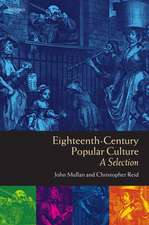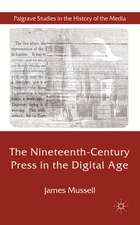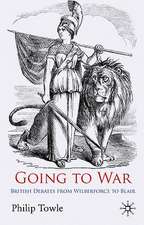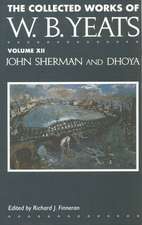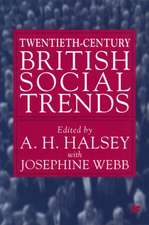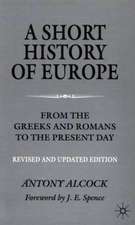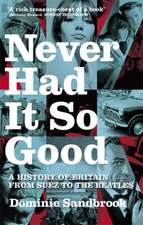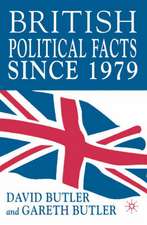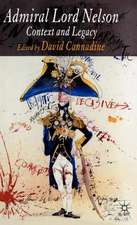Stealing Books in Eighteenth-Century London
Autor Richard Coulton, Matthew Mauger, Christopher Reiden Limba Engleză Hardback – 31 oct 2015
This study offers an authoritative and readable account of the hidden history of book theft in eighteenth-century London. It exploits a rich primary source, the compelling narratives of crime contained in the digitised Proceedings of the Old Bailey. The authors explain how cases of book theft came to court, and how in the ensuing trials the nature of the book itself became a question for legal debate. They assess the motives which led Londoners to steal books and the methods they employed in thefts from households and booksellers. Finally, the authors ask what the Proceedings tells us about the social ownership of books, and how the phenomenon of book theft differently affected book producers and consumers. Stealing Books in Eighteenth-Century London will appeal to readers interested in the connected histories of metropolitan life, crime, and the book in this period, and in the uses of digital resources in humanities research.
Preț: 421.34 lei
Nou
Puncte Express: 632
Preț estimativ în valută:
80.63€ • 83.87$ • 66.57£
80.63€ • 83.87$ • 66.57£
Carte tipărită la comandă
Livrare economică 15-29 aprilie
Preluare comenzi: 021 569.72.76
Specificații
ISBN-13: 9781137411952
ISBN-10: 1137411953
Pagini: 128
Ilustrații: XV, 146 p. 2 illus., 1 illus. in color.
Dimensiuni: 148 x 210 x 15 mm
Greutate: 0.42 kg
Ediția:1st ed. 2016
Editura: Palgrave Macmillan UK
Colecția Palgrave Pivot
Locul publicării:London, United Kingdom
ISBN-10: 1137411953
Pagini: 128
Ilustrații: XV, 146 p. 2 illus., 1 illus. in color.
Dimensiuni: 148 x 210 x 15 mm
Greutate: 0.42 kg
Ediția:1st ed. 2016
Editura: Palgrave Macmillan UK
Colecția Palgrave Pivot
Locul publicării:London, United Kingdom
Cuprins
1. Introduction.- 2. Courts.- 3. Prisoners.- 4. Prosecutors.- Appendix 1.- Appendix 2.- Bibliography.- Index.
Recenzii
“This excellent little book, Stealing Books in Eighteenth-Century London, showcases some of the best qualities of the digital humanities by offering new insights into book ownership and literary culture and by confirming stereotypes about criminal life in eighteenth-century London. ... Stealing Books is a joy to read because it is so exceedingly well-written and quick-paced. ... Anybody interested in the histories of London, crime, and the book will benefit greatly from reading this short volume.” (Franco Arato, Eighteenth-Century Studies, Vol. 51 (2), 2017)
Notă biografică
Richard Coulton contributes to both teaching and research within the Department of English at Queen Mary, University of London, UK.
Matthew Mauger researches extensively in poetry of the late-eighteenth and early-nineteenth centuries; in particular, he focuses on how Enlightenment legal debate forms an important context for artistic production in the period.
Christopher Reid is Senior Lecturer in English at the School of English and Drama at Queen Mary, University of London, UK. He works on eighteenth-century literature and history, with a focus on political writing and oratory in that period.
Matthew Mauger researches extensively in poetry of the late-eighteenth and early-nineteenth centuries; in particular, he focuses on how Enlightenment legal debate forms an important context for artistic production in the period.
Christopher Reid is Senior Lecturer in English at the School of English and Drama at Queen Mary, University of London, UK. He works on eighteenth-century literature and history, with a focus on political writing and oratory in that period.
Textul de pe ultima copertă
This study offers an authoritative and readable account of the hidden history of book theft in eighteenth-century London. It exploits a rich primary source, the compelling narratives of crime contained in the digitised Proceedings of the Old Bailey. The authors explain how cases of book theft came to court, and how in the ensuing trials the nature of the book itself became a question for legal debate. They assess the motives which led Londoners to steal books and the methods they employed in thefts from households and booksellers. Finally, the authors ask what the Proceedings tells us about the social ownership of books, and how the phenomenon of book theft differently affected book producers and consumers. Stealing Books in Eighteenth-Century London will appeal to readers interested in the connected histories of metropolitan life, crime, and the book in this period, and in the uses of digital resources in humanities research.
Dr Richard Coulton isa lecturer in English Literature at Queen Mary University of London. He is the author of Empire of Tea: The Asian Leaf that Conquered the World (2015, with Markman Ellis and Matthew Mauger), as well as the editor of Tea in Natural History and Medical Writing (2010). Dr Coulton has published journal articles on sociability, natural history, and horticulture in eighteenth-century London. He was previously a Fellow in Garden and Landscape Studies at the Dumbarton Oaks Research Library and Collection (Washington D.C.), an institute of Harvard University.
Dr Matthew Mauger is a lecturer in English at Queen Mary University of London. He researches literature of the long-eighteenth century, focusing in particular on how Enlightenment legal debate forms an important context for artistic production in the period. Another aspect of Matthew's research focuses on legal and commercial innovation, mercantile life, and the history of the civic institutions of the City of London. He has published articles on Blake’s legislative architecture, the literature of penal transportation, and the Corporation of London courts. He was the editor of Tea, Commerce and the East India Company (2010), and an author of Empire of Tea: The Asian Leaf that Conquered the World (2015).
Christopher Reid works on eighteenth-century literature and history, with a focus on political writing and oratory in that period. His first book, Edmund Burke and the Practice of Political Writing (1985), examined Burke's rhetoric in the context of contemporary political controversy. In Eighteenth-Century Popular Culture: A Selection (2000), which he edited with John Mullan, he examined cultural interactions between the elite and popular spheres. His most recent book is Imprison'd Wranglers: The Rhetorical Culture of the House of Commons 1760-1800 (2012), whichlooks at speakers, speeches, and their dissemination through print in parliamentary oratory's golden age.
Caracteristici
Uncovers a previously neglected area in the history of print culture Examines book theft across gender and class divides, and from the perspective of both prisoner and prosecutor Sheds new light on what book ownership meant in the long eighteenth century


